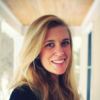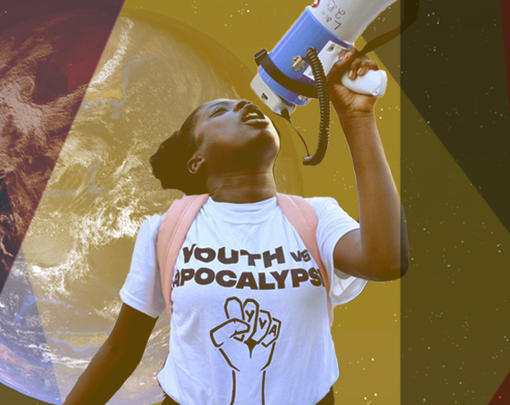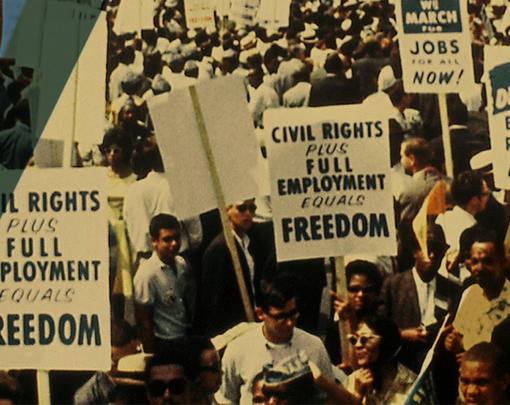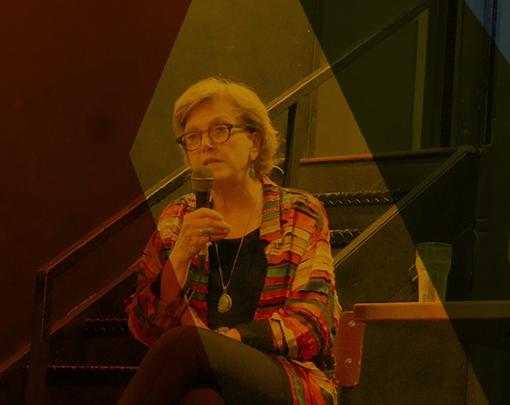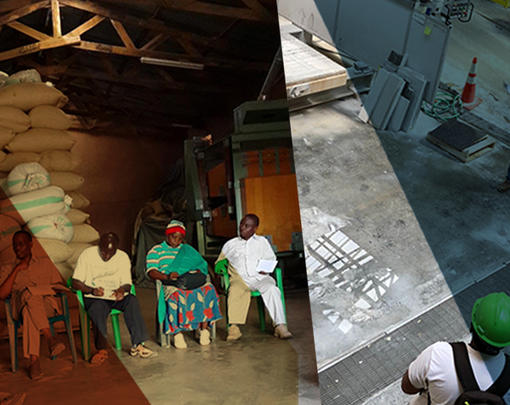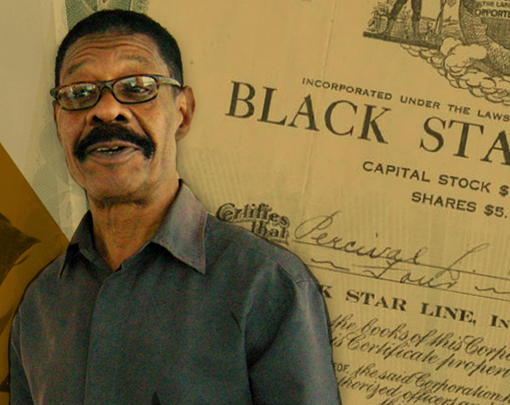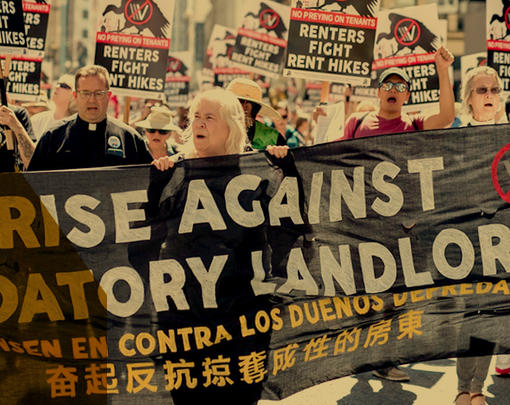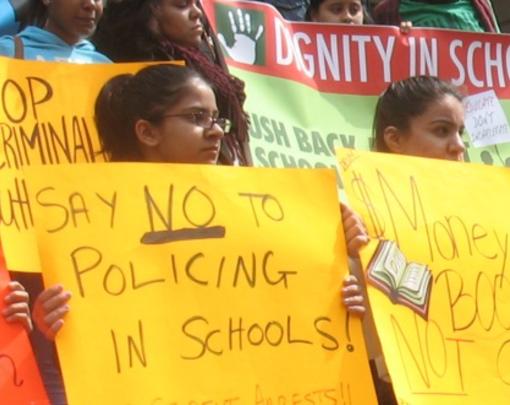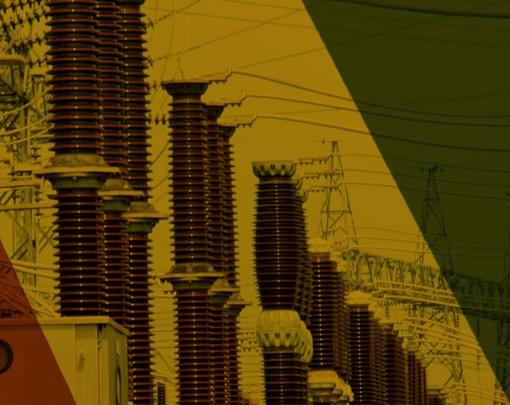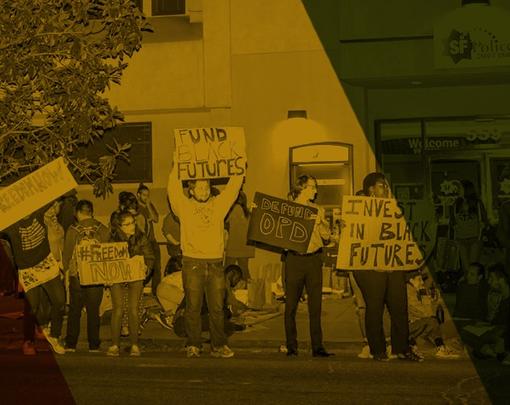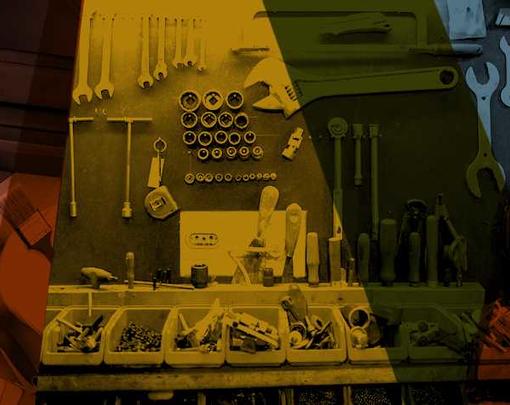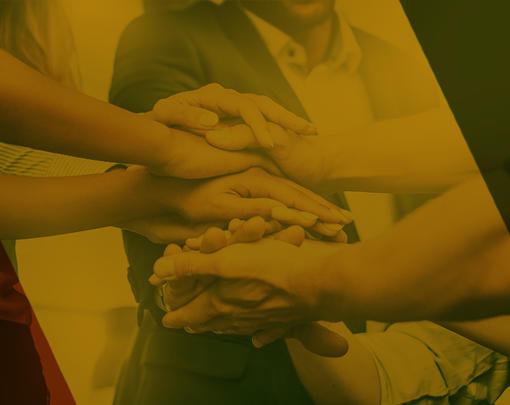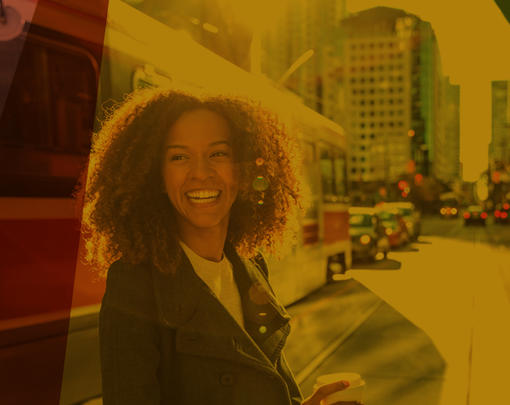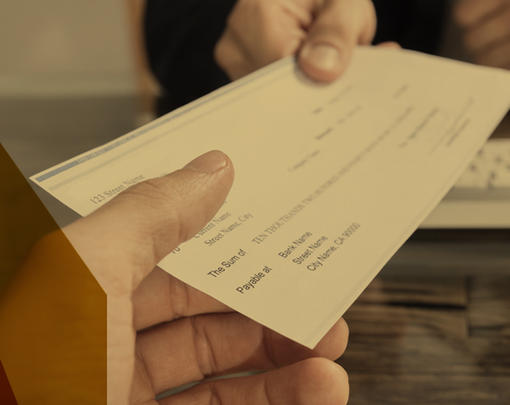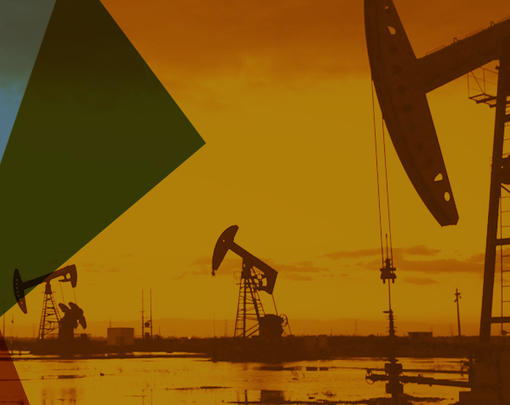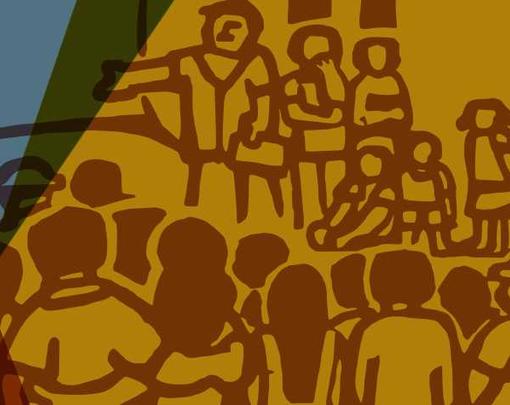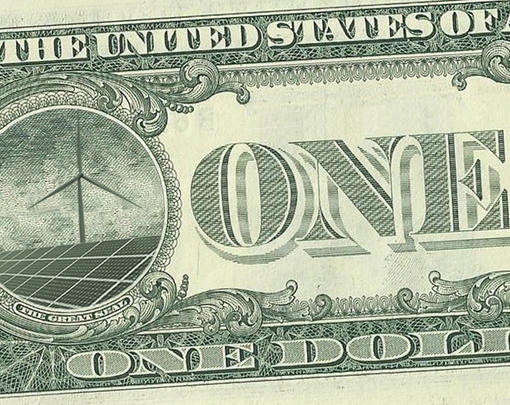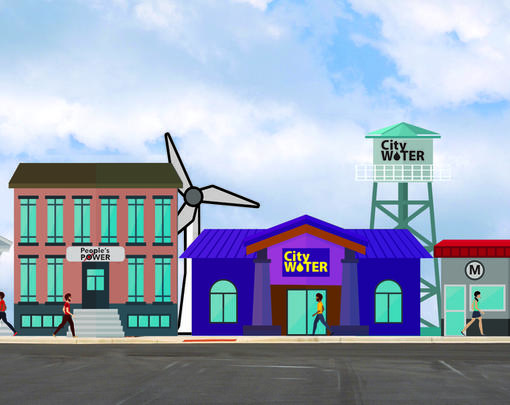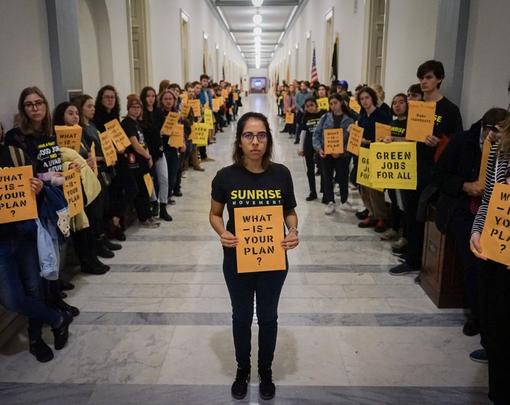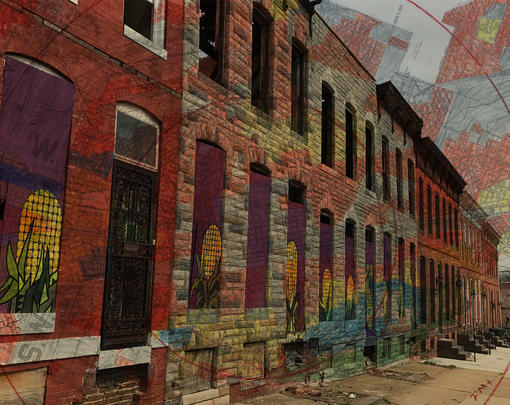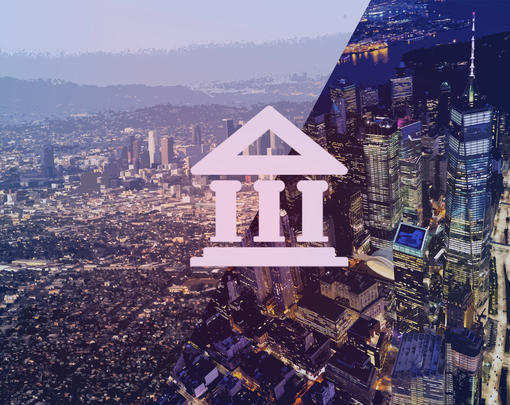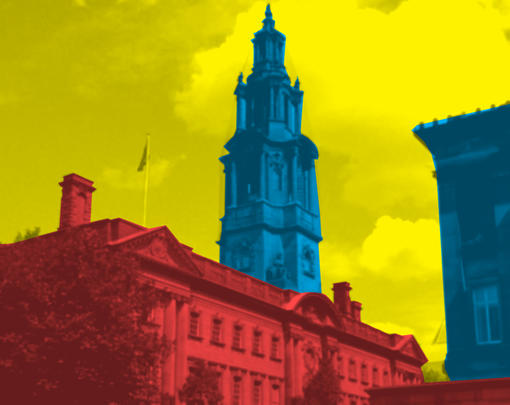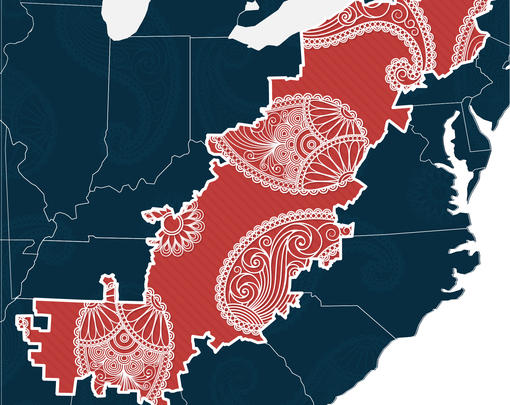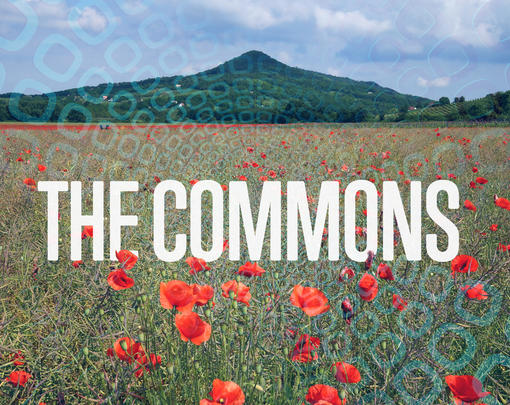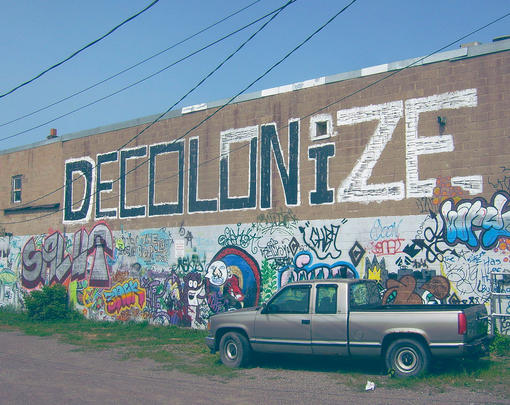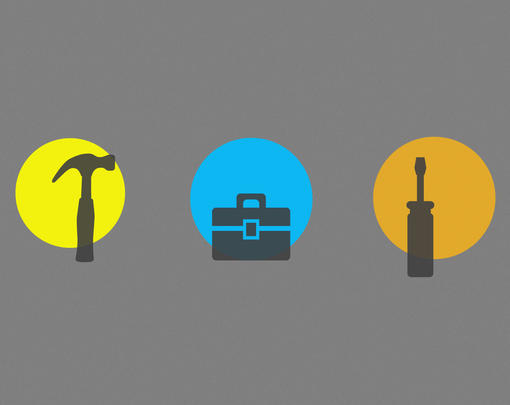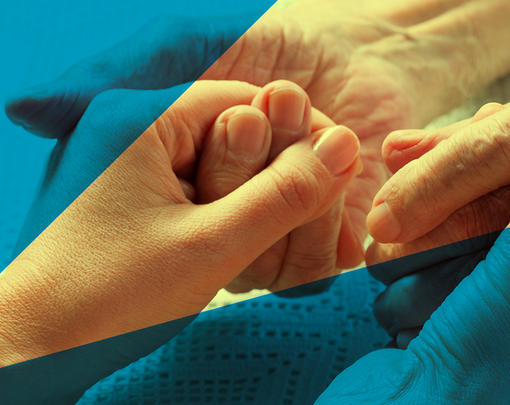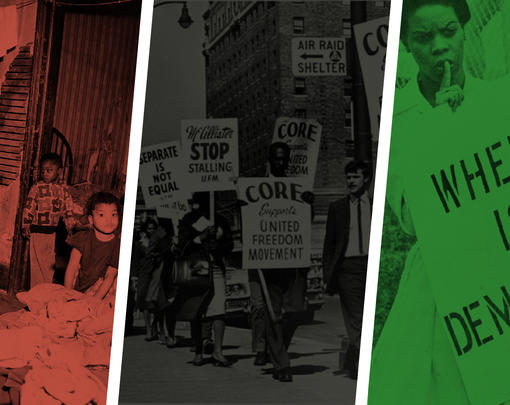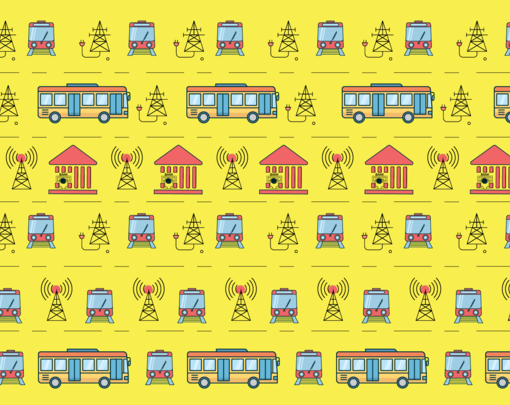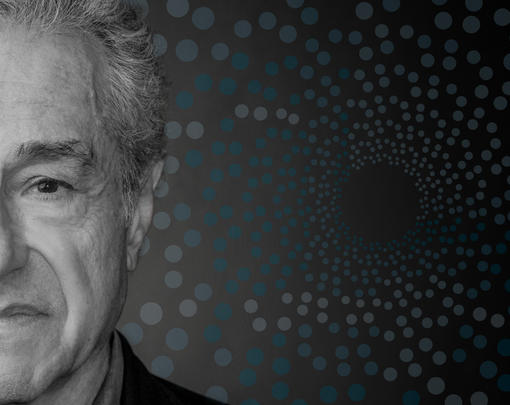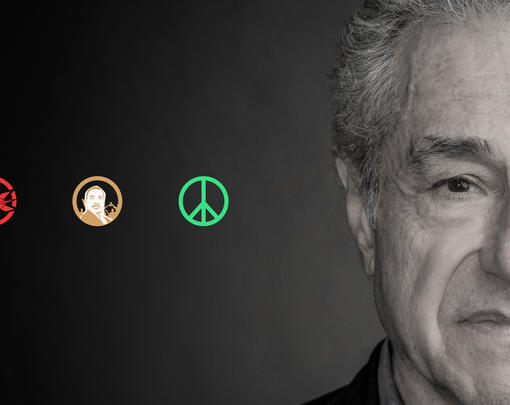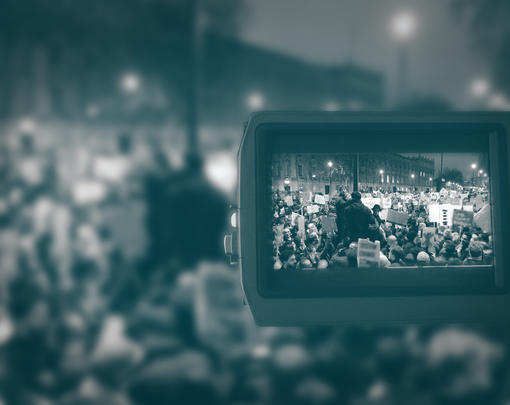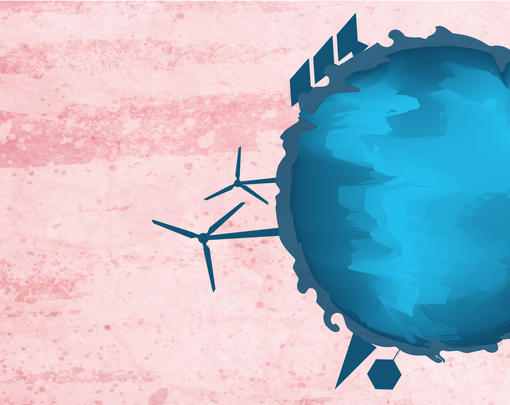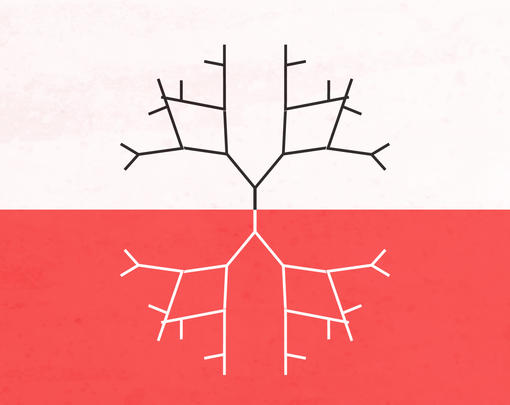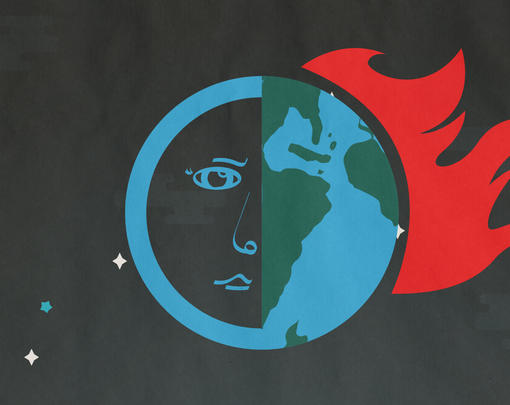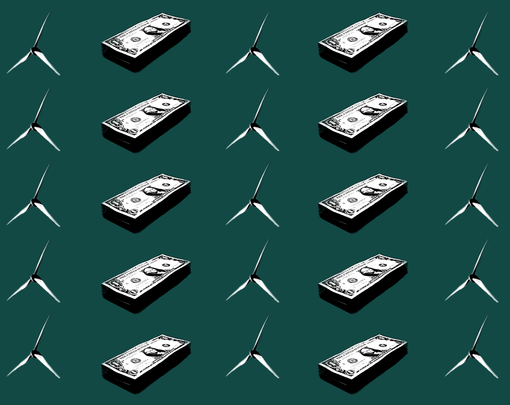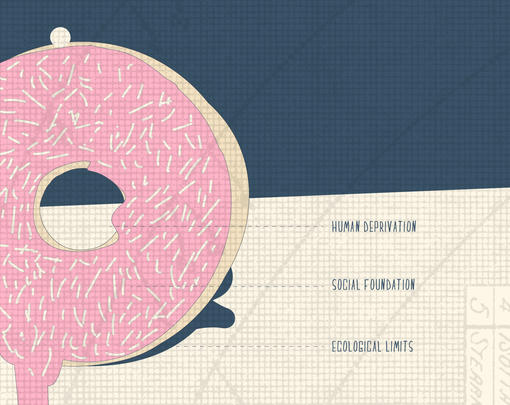This week Johanna Bozuwa joins host Adam Simpson to discuss energy democracy with Dr. Denise Fairchild, the President & CEO of Emerald Cities Collaborative. Denise is the co-editor of a new anthology, with Al Weinrub, entitled Energy Democracy: Advancing Equity in Clean Energy Solutions. You can learn more about Denise and the work of the Emerald Cities Collaborative here. And don’t forget the Next System Project’s energy democracy strategies card deck!
Subscribe to the Next System Podcast via iTunes, Soundcloud, Google Play, Stitcher Radio, or RSS.
Adam Simpson: Welcome back to the Next System Podcast, I’m your host Adam Simpson. Today, I’m joined by my colleague Johanna Bozuwa, a research fellow working on energy democracy here at The Democracy Collaborative. Johanna, thank you for joining me here today.
Johanna Bozuwa: Yeah, great to be here.
Adam Simpson: Today, we’re talking about energy democracy and our guest today is Dr. Denise Fairchild, the president and CEO of The Emerald Cities Collaborative, a nonprofit that focuses on advancing a sustainable environment by greening our cities, rebuilding our communities, and strengthening our democracy. Denise is the co-editor with Al Weinrub of Energy Democracy: Advancing Equity in Clean Energy Solutions. Denise, we look forward to hearing more about your work today, welcome to the program.
Denise Fairchild: Well thank you, I’m looking forward to the conversation.
Adam Simpson: Great, great. So before we start talking about your book Energy Democracy, how did you come to start working on these projects and campaigns? What drew you into this kind of work?
Denise Fairchild: Well I actually am a reluctant environmentalist. I’ve been in the business of community economic development actually for over 40 years. I started as a community organizer and then worked on affordable housing issues, working in inner-city communities trying to build communities from the inside out, having communities own their communities—their strategies and their own investment in housing and inner-city retail—building social capital in communities. I always felt that the environmental work was sort of a distraction, because for many of us it was jobs versus the environment. We were in that divide until I read a book, I guess it was about 2003, that really made me recognize that if we took all of our energy to clean up everything we corroded, corrupted, and contaminated, we could have environment, economy, and equity.
So that’s how I migrated into the space around environmental justice and climate justice, having fought an incinerator project in South Los Angeles where I worked for 30 plus years, but then really started moving on creating jobs in that space, becoming the inaugural president of Emerald Cities. For us, energy became the opening salvo for how to really rebuild our communities: energy efficiency and then ultimately solar as a way to not only create sustainable economies, but also to create jobs and to make sure there’s democratic participation in the process.
Adam Simpson: Right. So it seems like working at the community level, you began to feel that in this system, dealing with the environment became—however reluctant you may have been—kind of unavoidable. Is that fair to say when you think about those years?
Denise Fairchild: Well, it just became logical because where I started was working [against] an economic development model that was extracting and exploiting our human capital and our communities, but then I also recognized it was also exploiting and extracting from our natural environment and that we were all victims of the same sort of capitalist system that undermines the well being of life-nurturing activities in our communities.
Johanna Bozuwa: I’m thinking about your working on issues of housing and how that really correlates a lot with energy. Was that something that got you into energy and energy democracy specifically?
Denise Fairchild: Well, I think what’s really driving energy democracy is people. Democracy is about the ability of people to take control of their own future, to decide their own destiny. Whether that’s wanting affordable housing or providing housing when the market fails you, you step into that space and you create your own future. And you do it in a way where it’s not about profit, it is not about greed, but it’s about people. It’s about the use value, the use value of housing as opposed to the commodification or monetization of housing.
And it’s the same way with energy. It’s the use value of energy that’s important: how we need to use energy, not how we make money off of it. So it’s really a fundamental shift, when you bring people to the center of any sector—whether it’s energy or transportation or housing—and people decide what it is that they want out of that resource. It’s really about people getting to decide how to become safer, how to make their lives more secure and affordable, and how to make sure that they are healthy. Those are the issues driving energy democracy. It’s about the people understanding that besides that plug you stick your charger into, there’s something that goes behind it. You don’t see it every day, but there’s a grid there that is polluting our communities, that’s making our kids sick.
We have a higher rate of asthma and respiratory diseases in low-income communities of color, and it’s really a direct result of what we’re burning for our energy, where we’re getting our energy sources from. It’s petroleum products, it’s coal, it’s—as in Puerto Rico—oil, all kinds of things that are really causing illnesses. And that’s what’s driving a lot of the concerns of the contributors to this book. These are residents that are living in places that are being impacted by the burning of fossil fuels, and they’re pushing legislation, they’re pushing building leadership, and helping people learn where the energy is coming from and how it needs to be used differently to actually reinvest in building communities as opposed to being used for profits.
Adam Simpson: I think that leads kind of directly into I think the natural first question about this is, how would you define explicitly energy democracy?
Denise Fairchild: Energy democracy is really putting people at the center of defining their energy future. If you look at Puerto Rico, I think it is a prime example of how energy is impacting our lives and how we are not being made central to the decisions about our energy sources. Puerto Rico: number one, as are all communities of color, are among the most vulnerable to climate change. Climate change is being caused by the burning of the fossil fuels. The Commonwealth of Puerto Rico actually only gets 2% of its energy from renewables. Most of what they use comes from shipping oil into the island—and the dirtiest oil.
So they’re most vulnerable. They’re most vulnerable in terms of climate change, but also in terms of their health conditions. And shipping oild is expensive. That means that it’s impacting their economy as well: the price of electricity in those communities is actually more expensive than anywhere else in the United States except Hawaii. So when you look at the economy of Puerto Rico, it’s fundamentally a direct result of what kind of oil, what kind of fossil fuels that they’re using.
Now we’re thinking about how we rebuild this island. It has lost its entire grid, so this is another challenge when you’re not using a source of energy which is decentralized and able to be distributed across the island. And so the question is, how do you make this process of rebuilding the energy grid democratic? But what many people seem to be hoping for is the big plan where the private sector is going to come in and take over this public utility and that it’s going to be an opportunity to make money for the private sector.
Adam Simpson: Like Elon Musk.
Denise Fairchild: Like Elon Musk and other private investors that are really just sort of chomping at the bit, waiting to come in and privatize the new grid. And so the question is what is the new grid, what’s the source of energy, who owns it? Energy democracy is about making decisions where the people themselves decide where they’re getting their energy from—let’s say, for instance, an increasing percentage from renewables, how the grid will be built—whether the community wants to have distributed energy as opposed to utility-scale energy where grid failure can shut down the island again with another extreme weather event, and whether this distributed energy system just means solar panels or whether it means it’s a community grid and that’s who owns it.
Democracy at the fundamental level is about ownership, and is opposed to putting a vital resource that should be a part of the commons in the hands of the 1%, the elite class and the utility monopolies that are dominating this country. The sun and the wind are something that is universally owned—and should be actually shared equitably in our communities and used for reinvesting in and rebuilding those communities. So there are all kinds of examples—we can build a grid that are co-ops, or that are community-owned, or where the revenues that are generated go back to rebuilding communities and are also used to lower energy costs. So democracy is about fairness. It’s about democratic participation in the decision-making process, and it’s about ownership.
Johanna Bozuwa: So energy democracy, as described in your new anthology, is really a combination of strategies. And so on a national level, what are the policy implications? What does municipalization potentially look like, what are the inclusive finance opportunities, what does leadership look like? What do you see as the scope of your work on energy democracy, and what components are you particularly passionate about and what do you see as bright lights in the energy democracy space?
Denise Fairchild: Well, what the anthology does is collect stories of community groups in the struggle, because at the end of the day, wresting control of the energy industry is about power. It’s a power struggle, taking control of the utility monopoly and bringing that resource into communities, and so what you see is that it’s a David and Goliath kind of battle and those battles are played out differently depending on where the opportunities and the challenges are. And so what we see in rural Mississippi is different from what we’re seeing in Asian immigrant communities in the Bay area versus what we’re seeing in working-class communities here in Washington, D.C.
What is key to all of this is individuals, everyday people, stepping into the space and deciding for themselves “We’ve got a problem here, and what are we going to do about it?” So in some places it’s really about how do we change policies, in some places it’s how do we build our own energy projects, in some places it’s taking advantage of existing state legislation to actually municipalize energy—taking energy services away from the investor-owned utilities and putting it into local governments where actually individuals have opportunity. because this is a public utility, to say what they want their energy services to be and how it looks.
So I’m not certain that there is one right answer. There’s not a cookie cutter right now. There are a number of different things that are growing into a movement that cares about the same thing, that has the same kind of values, but with people using different strategies to get this energy democracy opportunity into their communities. I love the fact that here in D.C., D.C. Co-Op, for example, started with two young men, two boys, who came home and talked to Mom and said, “We want solar,” and in that process Mom got involved and said, “Well let’s figure this out.” What was a school project turned into becoming one of the largest campaigns in the country to create cooperative purchasing opportunities where people can buy solar through group purchasing systems.
But then it became a policy push. So they started with a project, and they all realized, “Well, we can’t do this because renewable portfolio standards are not working for us.” All right, so then they had to start organizing people that wanted solar around improving D.C. policies around renewable portfolios, so that they would have a greater percentage of the energy source mandated to come from renewables, which would then fuel the industry to create more of the investments in this space. And then that turned into a larger effort around group purchasing, and now there’s actually a national co-op that’s been born out of the work of these young men to help communities across the country and especially in the Northeast create group purchasing and cooperative structures so that they can own and control their energy future.
Which is very different from the work that’s happening in the Bay area, where Asian immigrant communities, Laotian communities, live right across from Chevron. Every day they see the emissions that are causing them to take their kids to hospitals, where they’re understanding where their health and respiratory challenges are coming from. And so their struggle is to shut down Chevron or to actually convert it so that they’re not contaminating the environment.
And so everywhere you go, this is happening, even in rural Mississippi, where there are rural electric co-ops, and real organizing efforts taking place by One Voice where they’re knocking on the doors of residents and saying, “Do you know you own an energy company?” And most people don’t. These are co-ops formed in the 1930s and they have been wrested away from the community, and they’re teaching folks about the fact that they’re owners, that they should be getting dividends, they should be determining what kind of energy source that they’re getting as opposed to coal, that they have the right to get renewables, and they have a right to elect the board of directors.
So it’s really different in every place, and I love all of the stories that you’ll find in the Energy Democracy edited volume.
Johanna Bozuwa: Yeah, and I’m just thinking about what you hit on there, ensuring that people actually know that they have agency in, for instance, co-ops, and I think that’s a really important component to add. We need education to ensure that we are making these things like co-ops or municipalized utilities real democratic institutions. There are structural issues that we need to deal with in, for instance, a municipalized utility to ensure that it is actually serving the people it is supposed to and it is creating good.
Denise Fairchild: Right, so that’s a very good point. I mean, you made a couple of good points, one is agency which is what the democratic process is all about and particularly in the energy sector. People have to be able to understand this is something that is not hidden behind the walls that you can’t touch, but that you can participate in this, that you must participate in this, and we need to educate folks about what the energy sector is, how it’s impacting their lives day to day, and how they can use agency to make it better.
And just because you are a co-op or just because you have a public utility doesn’t mean that it’s serving the needs of the people in the way that it should be, and I think that was your other point. What we’re seeing in California and six other states is this notion of community choice, community choice energy, which is a state enabling legislation which allows for municipal governments, or a combination of municipal governments, to take energy services away from investor owned utilities and provide it for their constituents.
And so that’s a really big movement that’s taking place, particularly in California. They’re suggesting that in five years, 60% of all energy services will be provided by local governments as opposed to Southern California Edison or PG&E. That’s huge, highly disruptive as you can imagine! Investor owned utilities are not happy about this, but as these municipal governments are forming these new energy companies, we have to be in that space to make certain that they really are serving communities and that it’s not just shifting power from one monopoly to another monopoly. We need to make sure that we are really getting true renewable clean energy that is going to communities that need it most—low income communities of color. These communities need to be in this process, and they need to be getting the job opportunities and the business opportunities that are going to be generated by it.
Everybody, even investor owned utilities, are moving into renewables. But they’re going to do it in a way that benefits them, their companies, and their shareholders as opposed to benefiting the communities that we care about.
Adam Simpson: Right—this is the problem, for instance, with some rural cooperatives that have been around for a long time where people aren’t aware of their stake in this system, they tend to be not very inclusive and frankly dominated by white affluent men. How do we ensure that these new bodies are inclusive of the people that they’re supposed to be representing and serving?
Denise Fairchild: Well in fact, that’s the work that’s taking place at One Voice in rural Mississippi—where they’re building the knowledge and leadership cadre of residents in those communities and having sessions about what is a co-op, what it means to be an owner, what are the rules and the regulations, and how do you get elected to be a representative on the board. What is a very important point is not only are these white men that are running these rural co ops, but the revenues that are being generated out of these co-ops are being used against the people that they’re serving. This money is supporting conservative candidates that are in fact not embracing some of the progressive agendas needed in these areas.
So it’s very important that if we’ve got these energy companies that we show up as shareholders and participate in all of the meetings and the decision making because, particularly for co-ops, we have a voice to exercise in making the decisions day to day.
Adam Simpson: One thing that we found interesting about the anthology, and about energy democracy more broadly, is tgar when we’re talking about how we transfer power to the local level and distribute it, there are some tensions that emerge that are really interesting. So for instance, Sean Sweeney is very strongly in favor of municipalization while others like ILSR are more focused on distributed forms of solar, down to the individual level like rooftop solar. Are there tensions you think are particularly illuminating in the work you’ve done?
Denise Fairchild: Well, yes. In fact, this has been a collaborative project: the contributors to this have met and we’ve had several conversations to define what is energy democracy and what is the right way to do it and what are the values and principles that are underlying energy democracy. It’s an emerging movement, and as I said previously, one that’s coming from different directions and with people who have different ideas.
The labor movement particularly are struggling within themselves about this new energy future and what it means for their current members. Clearly, I think the notion of just transition suggests that we have to be concerned about as we move from dirty energy to clean energy about who benefits and who loses. The tension is is that for folks that are in the dirty energy industry, it’s supporting their families. It’s how they’re making a living, it’s how they’re educating their kids, and we cannot undermine or neglect the importance of that issue for them.
So we’ve got folks that are labor unions that are in the utility sector, we’ve got the building trades that obviously want Keystone pipeline and they want to do anything that’s going to keep their workers, their members working. And then we’ve got some members of the union family at large who see it a different way. We’ve got nurses who see the impact of dirty energy, because day to day they’re treating the patients that have the respiratory problems, that have the cancers and the other health consequences. So within the union family there is this really huge tension about how to move to a new energy future.
Now, there are several issues that underlie this. One is that the business model itself, the fossil fuel energy sector, is a dinosaur. And so investor owned utilities themselves are already saying they’re getting out of coal. Coal has been a dying sector for five to ten years, so it’s not as if it’s going to be resuscitated—mainly because renewable has become cheaper than coal. So even in the private utility sector: the whole infrastructure has to be rebuilt.
So we have an issue, even though folks are suggesting that there are more jobs or better jobs than their current jobs in the dirty energy sector. The reality is the economy is shifting and we have to make sure that it shifts. But the other tension you mentioned Adam is around the question of whether we build utility scale or municipal scale solar farms or wind farms, where you have to distribute it from its source to its use, or a more decentralized system where power gets generated on top of your roofs or a community grid in your neighborhood? That’s the other tension, and it’s all a job related issue. The bigger utility scale renewables are seen as being more of a job generator than the more decentralized system. Those are some of the tensions.
And the reality is utility scale renewables have built in challenges. One is the further away you are from the source, you waste more energy in transmission. And then when there’s a centralized grid that then goes down, again, you don’t have the community resilience that we are looking for. You’ve got to have this more decentralized system to address the frequency and ferocity of the kinds of extreme weather events that we’re having.
Johanna Bozuwa: I’m just thinking a little bit about what you talked about in the transition of jobs, I think it’s really interesting because fossil fuel jobs, though they are jobs, are usually not great—and construction jobs are usually temporary ones. When we’re transitioning over to clean energy jobs, how do we ensure that those are good jobs as well and are actually creating long term community wealth? That they have the ability to unionize if that is necessary? I think is something that should be talked about within this space as well.
Denise Fairchild: Yes, it’s a very good point, and the fact of the matter is they won’t be talked about, this notion of good jobs and local jobs and union jobs, really becomes a labor community struggle to make sure that as we change into new systems that we don’t throw the baby out with the bathwater. We’ve got new technologies and we’ll have new kinds of skills that are needed to move these technologies, but we want to make certain that these new jobs are able to be family sustaining jobs.
But it’s a conversation that we have to have, and in the community choice negotiations that are taking place around California in particular, it’s labor and community that are showing up at these meetings and saying “Okay, this is all good, we like the 100% renewable stuff, it’s all good, but it’s not enough.” We’ve got to put the racial and social and economic justice values into these new systems that we’re building, and so what are the labor standards, what are the community standards, and what are the public health standards that we’re advancing? And that’s not going to happen without community organizing and community struggle.
Johanna Bozuwa: Absolutely, I think that’s the difference between a transition to renewables and a just transition.
Denise Fairchild: Exactly. And we have a huge movement right now for 100% renewable energy, and we’re absolutely supporting 100% renewable plus. Because it is just not enough to have 100% renewables.
Adam Simpson: Right. Well I want to move to kind of our current political context. In the introduction of your book, you describe energy democracy as even more important in the wake of Donald Trump’s presidency than it was before. We’re starting to see the effects of this presidency, whether it be on the Paris agreement or the Clean Power Plan or on and on and on. We have the Department of Energy and the EPA headed by people that are skeptical of global climate change. How do you feel about the importance of energy democracy in our current political context, and what it means right now?
Denise Fairchild: Well, I have maybe a different view than others about the current political context. I think energy democracy was important before the 45th administration, and I think it’s important now as much as it was before. I do believe that while this administration is making it more challenging, that the market forces have made a decision on renewables that, “Okay, you can sit on the sidelines but we’re doing this.” You’ve got the mayors of this country, you’ve got the governors of this country, you’ve got the private sector, the Bloombergs and others, that are saying, “You’re making a big mistake, this genie has left the bottle and she’s not going back in.”
And so when you really think about energy, it is regulated at the state and local level. And so while the signals at the national level are good—it would be great if we had an administration that waved the flag and said that we’re going to be a real leader in climate change and we’re going to be a real leader on the Clean Power Plan and the reduction of carbon emissions, I think that at the end of the day at the local level, those markers are already in place. The movements are already underway, and people are recognizing the economic as well as the health impact and value of this shift. Investors particularly, see this as a new opportunity for growth and development and profit. They’re seeing how we’re comparing to China.
So you’ve got places like California saying, “Look, we’re all in, we’re doing this,” and that’s where the investment is going. It’s where they’re starting new companies and they’re testing and doing research on new technologies. Or in Massachusetts and other places. So what I think this administration is doing is creating energy ghettos in other parts of the company where there’s more of a conservative agenda, leaving folks behind in dirty energy and undermining their ability to actually grow jobs in the new economy. So at the end of the day, I believe that the unfortunate thing is that this movement is going forward but it’s going to be moving forward with a lot of people still left behind because there’s no national signal that this is the right thing to do and the conservative political climate makes it hard to operationalize this at the local level in many places.
So I don’t know if that’s how you see the world, but I wake up every day because I know this train is moving, it’s moving quickly, and my concern is that it’s going to move without the values of social justice at the center of this new technology revolution.
Johanna Bozuwa: To jump onto that again, coming up is the Conference of the Parties in Bonn (part of the same process in which the Paris climate agreement was signed a couple of years ago), and I’m wondering, we’ve talked about how energy democracy is really rooted in the local, but when you’re getting up to those international levels, are there advocates and activists that are in that space? What should they be working for and is this a correct space to also be talking about energy democracy?
Denise Fairchild: The advocacy community is very well organized, and it is international, the global South in particular. They’re providing leadership around this space where they’re really talking about the importance of [climate justice]. Talking about what the North has been been doing to the climate, and what the climate impacts are, particularly in island communities and the global South—where poverty is actually at highest, where they’re most impacted by climate change, but where they use the least amount of energy.
So these are important spaces to be in, if for no other reason than solidarity and showing solidarity within labor and community groups around this issue. When you look at the climate march in New York a couple years ago, 400,000 of us showed up. We thought there might be about 200,000 and we were wondering why it took us two hours to move. It wasn’t until a day later that I realized it’s because we were there in force.
And so most of America believes that there is climate change, most of Americans are showing up to demonstrate their support for action on climate change. Doing it in solidarity with the world community begins to grow a movement in a way that I speak about in my chapter that ends the book, which is that this movement is a global movement in the same way that the abolitionist movement was and had to be a global movement. And it’s coming together, recognizing the importance of addressing issues of power, profits, and privilege—that we have to dismantle those pillars to create a new clean, just energy future, and it’s in solidarity where we get strength, where we get ideas, and where we can join forces.
Adam Simpson: The abolitionist analogy is really powerful, because it’s one of those things, labor being such an important part of the global economy at one point and fossil fuels being such an important part of the global economy now. We need to change the engine while we’re still in flight as it were, and this takes a shared vision and a set of shared values.
Denise Fairchild: It really does. I mean, first of all we need to recognize that slavery was the original form of energy, so we’ve replaced slavery with fossil fuels but it’s all to drive toward the same objective which is to make a few people wealthy right?
Adam Simpson: And largely at the expense of people of color and …
Denise Fairchild: Expense of everyone, right? And so in the same way, well, we’re slaves to fossil fuels. I mean, there’s no way we can even think about living without everything that’s fueling our lives, turning our lights on, and feeding us, in the same way that America could not think about living life without slaves. I mean, it was that entrenched in the culture of America and the world: it was “natural,” it was “god-given,” this is the only way that we can live.
And so it took hundreds of years to dismantle slavery. I believe we’re halfway through what it’s going to take to dismantle the fossil fuel economy, but it’s not going to come without struggle and that’s what this anthology begins to lay out: how people are in the battle on the ground, everyday folks battling it where they can and how they can. And this points to a larger question, about how it has to be a struggle that is global in nature, and not just local, because the fossil fuel economy is a multinational economy, and you can’t dismantle it here without understanding how it’s connected to the rest of the world.
So the larger we grow the movement, the more likely that we can see the end of a dirty energy future and the beginning of one that’s more sustainable and more just.
Adam Simpson: I wanted to talk just a little bit more about your theory of change. For someone who wanted to put your ideas and the ideas of your contributors into practice, are there particular bright spots that you would tell them to take inspiration from, is there particular counsel you’d give them in this particular kind of uncertain political context?
Denise Fairchild: I would say to look at one of the chapters in the book, and I mentioned it earlier, D.C. Co-Op—where it really just started at the neighborhood level. This is not something that is so large and so remote that you can’t touch it and do something about it. It was really finding 20 people, 50 people, who really wanted solar, and working with each other, bringing in experts from outside, to figure out how to do this in a way that’s affordable. And in that process, being able to bring renewable energy into the local community through group purchasing, and then growing to engage with the policy environment, becoming, growing your agency in this space.
So that’s one level of engagement which is just at the very local level. If you’re interested in doing this, get a couple of the neighbors together and then call Co-Op Power, for example, to get the technical assistance to help to grow this. But on a policy level, I would say if you really are an activist, go to your public utilities commission. Everywhere across the United States, there’s a state level public utilities commission that’s addressing these issues right now about how to move more into renewables, how to move into distributed energy, what do we do with solar, what do we do with the IOUs, these conversations are taking place all over the country. Step up, step in, lean in and be a part of the conversation.
Adam Simpson: Because the industry is showing up so people have to show up too.
Denise Fairchild: They have to show up. And the industry is transforming rapidly in the same way where we used to have landlines for telephones, and now for some households they don’t exist. It’s the same, we’re seeing the same kind of transformation revolution taking place in the energy sector, and now is the time to be in the conversation, and to invent and re-engineer our vision about what that future could look like.
